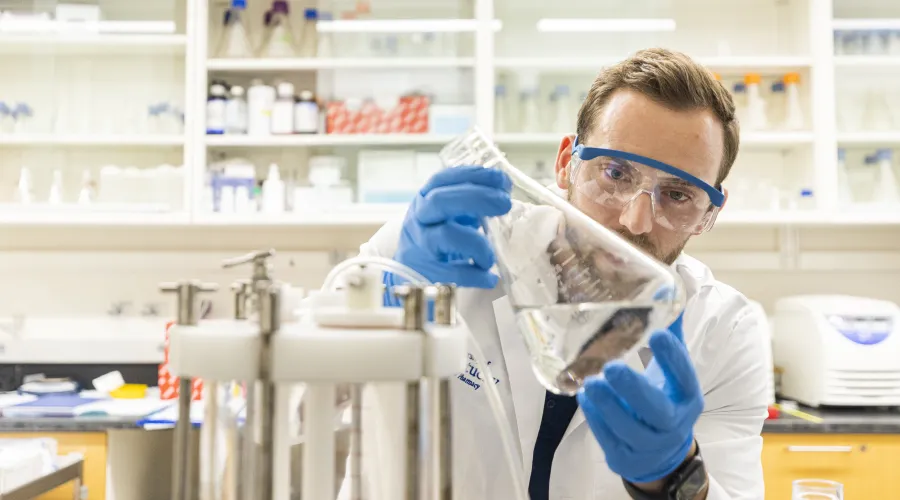
Research
The University of Kentucky prioritizes a highly dynamic, multidisciplinary research enterprise with an emphasis on emerging technologies. This environment is supported by the continuous interface between typically unrelated departments. UK is one of eight American universities that houses liberal arts, engineering, professional, agricultural and medical colleges on one contiguous campus. The medical campus ‘doubles down’ on this tactic by adjacently housing seven health colleges (Medicine, Dentistry, Health Sciences, Nursing, Pharmacy, Public Health, and Social Work), encompassing 25 basic science and clinical departments and over 1,100 full-time faculty members. Through prioritizing collaborative research, UK is able to efficiently translate basic science to benefit target populations.
This collaborative campus model continues to produce an outstanding record of grants and contracts to support research at UK. Read more about the impact of UK Research here.
- External Grants & Contracts: $469.9M (FY 2025)
- Sponsored Project Awards: 200M+ (FY2025, maintained since 2006)
- Translation: Research funding obtained by individual researchers, separate from external funding.
- UK Research & Development Economic Impact: $937M (FY2024)
Research Priority Areas
These eight areas have been designated since 2018 to address the needs of Kentuckians:
- Neuroscience ($75M FY2023)
- Substance Use Disorder ($74M FY2023)
- Cancer ($71M FY2023)
- UNITE ($63M FY2023)
- Diabetes & Obesity ($49 M FY2023)
- Energy ($34 FY2025)
- Materials Science ($29M FY2023)
- Cardiovascular Disease ($27M FY2025)